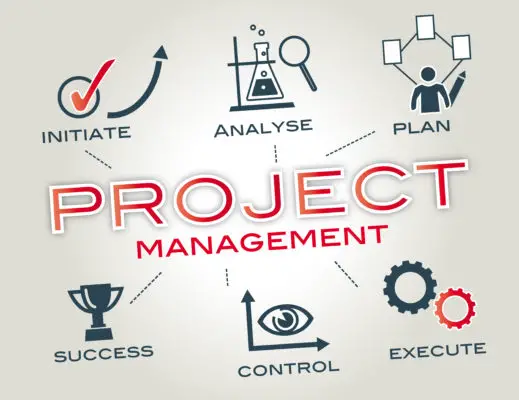This article provides a comprehensive overview of the steps necessary to become an environmental project manager.
It discusses the role of an environmental project manager, including their responsibilities and duties.
Additionally, it explores the education and training required for this profession and the necessary professional experience.
Furthermore, the article highlights the essential skills that environmental project managers should possess.
What is an Environmental Project Manager?
This explores the qualifications required to become an environmental project manager.
The role of an environmental project manager is multifaceted, requiring a combination of technical expertise, leadership skills, and a strong understanding of environmental regulations and practices.
To excel in this position, individuals should possess a relevant educational background, professional experience in environmental management, and effective communication and problem-solving abilities.

Qualifications for Becoming an Environmental Project Manager
One important aspect to consider when aspiring to become an environmental project manager is the required qualifications.
Environmental project managers are responsible for overseeing and coordinating various environmental projects, ensuring compliance with environmental regulations, and achieving project goals.
To become qualified for this position, individuals must have a strong environmental science and management background.
Additionally, they should know environmental regulations and the ability to lead and manage a team effectively.
Some of the qualifications and requirements for becoming an environmental project manager include:
- Education:
- Bachelor’s or master’s degree in environmental science, environmental management, or a related field.
- Additional certifications or training in project management can be advantageous.
- Experience:
- Relevant work experience in environmental projects or related fields.
- Strong leadership and communication skills to effectively coordinate and manage project teams.
Education and Training
This will explore the key points related to education and training for environmental project managers, including required degree programs, job training and certifications, and continuing education requirements.
Required Degree Programs
Environmental project managers typically pursue degree programs such as environmental science, environmental management, or sustainability studies.
These programs provide students with a solid foundation in the environmental field and equip them with the necessary knowledge and skills to manage projects in this industry.
Obtaining a degree in engineering, environmental project managers can also gain the technical knowledge required to understand complex construction projects and effectively manage them.
Professional experience in project management and a strong understanding of environmental assessments are additional skills essential for success in this field.
- Relief: Knowing that professionals are dedicated to ensuring that construction projects meet environmental requirements and legal standards can provide relief that the environment is being protected.
- Hope: The fact that there are individuals with the expertise to assess and manage the environmental impacts of projects can inspire hope that our natural resources will be preserved for future generations.
Job Training and Certifications
Job training and certifications are crucial in equipping professionals with the necessary skills and knowledge to manage and mitigate environmental impacts in construction projects effectively.
Environmental project managers require technical skills, project management experience, and a deep understanding of environmental regulations and practices.
Certifications and job training programs provide individuals with opportunities to gain expertise in various areas related to environmental management.
These programs often focus on risk assessment, environmental management systems, and sustainability management.
Completing these programs, professionals can enhance their knowledge and skills, making them better equipped to navigate the complexities of environmental project management.
In addition to job training programs, various certifications are available for environmental project managers.
These certifications validate the individual’s expertise and demonstrate their commitment to environmental best practices. Some of the widely recognized certifications in this field include:
| Certification | Description |
|---|---|
| Certified Environmental Manager (CEM) | Provides a comprehensive understanding of project management principles and techniques necessary for effective environmental project management. |
| Project Management Professional (PMP) | Concentrates on managing hazardous materials and waste, ensuring compliance with safety regulations. |
| Leadership in Energy and Environmental Design (LEED) | Specializes in sustainable building design and construction, emphasizing environmental performance and efficiency. |
| Certified Hazardous Materials Manager (CHMM) | Concentrates on the management of hazardous materials and waste, ensuring compliance with safety regulations. |
| Certified Professional in Erosion and Sediment Control (CPESC) | Focuses on erosion and sediment control practices to prevent soil erosion and protect water quality. |
Continuing Education Requirements
Continuing education requirements for professionals in environmental project management ensure that individuals stay current with industry standards and best practices.
These requirements play a crucial role in the ongoing professional development of environmental project managers, equipping them with the necessary skills and knowledge to effectively address the challenges of their role.
To evoke an emotional response in the audience, it is important to highlight the following benefits of continuing education in environmental project management:
- Enhanced environmental management strategy: Continued education allows environmental project managers to stay updated on the latest strategies and techniques for effective environmental management, ensuring they can make informed decisions that minimize ecological impact and promote environmental protection.
- Improved risk and asset management: Ongoing education equips environmental project managers with the skills to identify and manage potential risks, enhancing the overall sustainability and efficiency of projects.
- Foster strong relationships: Continuing education provides opportunities for professionals to network and build strong relationships within the industry, fostering collaboration and knowledge sharing.
- Water conservation: Ongoing education in environmental project management promotes water conservation by equipping professionals with the tools and knowledge to implement sustainable water management practices.
Professional Experience
This will focus on the professional experience of environmental project managers, particularly their involvement in engineering projects, construction projects, and working with clients and community groups.
Additionally, we will explore the role of regulatory agencies and legal requirements in environmental project management and the importance of safety measures, quality assurance, and environmental practices in ensuring successful project outcomes.

Engineering Projects
One aspect of the role of an environmental project manager involves overseeing and coordinating engineering projects related to environmental conservation and sustainability.
This requires working closely with clients to understand their needs and ensuring that projects comply with relevant regulations and requirements.
The environmental project manager manages the entire project lifecycle, from initial planning and design to construction and implementation.
This includes working with engineering teams and coordinating with various agencies to address environmental impacts and ensure sustainable practices are followed.
Effective waste management and communication strategies are also essential to minimize environmental impacts and keep stakeholders informed.
Successfully managing engineering projects, environmental project managers contribute to the preservation and sustainability of our environment.
- Fostering sustainable practices for a better future
- Protecting the environment through effective project management
Construction Projects
Construction projects play a crucial role in implementing environmental conservation and sustainability practices.
Green construction projects aim to minimize the negative environmental impact by incorporating energy-efficient designs, using sustainable materials, and reducing waste generation and carbon emissions.
Environmental project managers oversee these projects and ensure compliance with applicable regulations.
They work closely with engineering firms, clients, and contractors to develop environmentally friendly solutions that meet the client’s requirements and adhere to environmental standards.
Environmental project managers assist in the development of cost estimates and recommend cost reduction measures that align with sustainable practices.
They also play a vital role in building strong client relationships by providing expertise and acting as an environmental consultant throughout the construction process.
Working with Clients and Community Groups
Working closely with clients and community groups, environmental project managers collaborate to develop sustainable solutions that meet the needs and expectations of stakeholders while minimizing negative environmental impacts.
This collaboration is crucial in ensuring that the project aligns with the client’s vision and goals while also considering the project’s environmental responsibility.
Building strong client relationships is essential for effective communication and understanding project requirements.
Through regular client meetings, managers can gather feedback and make necessary adjustments to the project plan.
Additionally, managers must establish relationships with community groups to ensure their concerns and perspectives are considered.
Incorporating these stakeholders’ input, project managers can create solutions that benefit the clients and businesses involved and contribute positively to the environment and the community.
Regulatory Agencies and Legal Requirements
Regulatory agencies and legal requirements play a pivotal role in ensuring compliance with environmental standards and guidelines and promoting sustainable practices in project development and implementation.
Government agencies, such as the Environmental Protection Agency (EPA) in the United States, have the authority to enforce legislation and regulations related to environmental protection.
These agencies work closely with consultants and environmental technicians to review project plans and applications, ensuring all necessary safety measures are in place.
Environmental legislation often requires public hearings to gather input from stakeholders and the general public.
This collaborative approach helps to address potential environmental concerns and ensures that engineering projects are carried out in a manner that minimizes negative impacts on the environment.
| Regulatory Agencies | Role |
|---|---|
| Environmental Protection Agency (EPA) | Enforces legislation and regulations related to environmental protection |
| State Environmental Agencies | Implement and enforce state-specific environmental laws |
| Local Environmental Agencies | Oversee compliance with local environmental regulations and guidelines |
Safety Measures, Quality Assurance, and Environmental Practices
Implementing safety measures, quality assurance protocols, and adherence to environmental practices are crucial for ensuring the successful execution of engineering projects.
This is while minimizing potential risks and negative environmental impacts. To achieve this, project managers must prioritize the following:
- Safety Measures:
- Conduct regular safety inspections and risk assessments to identify and mitigate potential hazards effectively.
- Provide appropriate personal protective equipment (PPE) to all workers and enforce its use to ensure their safety.
- Quality Assurance:
- Develop and implement quality control procedures to ensure project deliverables meet the required standards.
- Conduct regular inspections and audits to identify and rectify any deviations from the specified quality criteria.
- Environmental Practices:
- Adhere to environmental regulation audits and ensure compliance with relevant environmental legislation.
- Implement effective pollution control measures and manage hazardous materials appropriately.
- Provide environmental training to workers and promote awareness of environmental issues.
- Generate accurate and timely environmental reports and ensure proper soil remediation and other environmental impacts.
Essential Skills for Environmental Project Managers
To successfully navigate the complexities of environmental project management, professionals must possess a range of essential skills.
Excellent communication skills are crucial for effective collaboration with stakeholders, clients, and team members.
Additionally, the ability to work under pressure and meet deadlines is essential for ensuring project success and maintaining client satisfaction.
These key points will be discussed further in this section, highlighting the importance of these skills in the role of an environmental project manager.
Excellent Communication Skills
Effective communication skills are essential for individuals aspiring to become successful environmental project managers.
Environmental managers must effectively communicate with various stakeholders, including clients, team members, and regulatory agencies.
Excellent communication allows project managers to articulate project goals, objectives, and expectations clearly.
It also enables them to facilitate effective collaboration and teamwork, ensuring all team members are on the same page.
It is important to highlight the benefits of excellent communication skills, such as improved efficiency, increased productivity, and enhanced client satisfaction.
Effective communication skills can also help project managers navigate complex environmental strategies and regulations, ensuring compliance and successful project implementation.
Developing and practicing excellent communication skills through assessments, training, and real-world experiences in project management.
This can help individuals become skilled managers in environmental management firms and secure environmental management jobs.
Ability to Work Under Pressure and Meet Deadlines
Working under pressure and meeting deadlines is crucial for individuals responsible for managing environmental projects.
Effective time management is essential to complete tasks within specified timelines successfully.
Environmental project managers often work with project teams, requiring strong organizational skills to coordinate and delegate responsibilities.
Meeting deadlines is vital as delays can significantly affect project outcomes, such as increased costs or missed opportunities.
To ensure successful project delivery, environmental project managers should develop strategies and practices for effective time management, including prioritizing tasks, setting realistic deadlines, and monitoring progress regularly.
Working under pressure and meeting deadlines is a key competency for individuals aspiring to excel in the environmental manager role.
Developing extensive experience in environmental project management and honing organizational skills will contribute to achieving career goals in this field.
Frequently Asked Questions
What Are the Typical Responsibilities of an Environmental Project Manager?
Typical responsibilities of an environmental project manager include overseeing project planning and execution coordinating with stakeholders.
It also ensures compliance with environmental regulations, managing resources, monitoring project progress, and evaluating outcomes.
What Are the Main Challenges Faced by Environmental Project Managers?
The main challenges faced by environmental project managers involve navigating complex regulatory frameworks and balancing competing stakeholder interests.
Managing limited resources, mitigating environmental risks, and ensuring compliance with sustainability standards.
How Does an Environmental Project Manager Contribute to Sustainability Efforts?
The contribution of an environmental project manager to sustainability efforts is multifaceted.
They oversee the planning, implementation, and monitoring of projects to mitigate environmental impact, promote conservation practices, and ensure compliance with sustainability standards and regulations.
What Are the Career Prospects and Advancement Opportunities for Environmental Project Managers?
The increasing global focus on sustainability influences environmental project managers‘ career prospects and advancement opportunities.
The demand for professionals in this field is expected to grow, with the potential for higher positions and leadership roles.
Are There Any Certifications or Professional Organizations Environmental Project Managers Can Join to Enhance Their Career?
Certifications and professional organizations can enhance the career of environmental project managers.
They provide opportunities for networking, continuing education, and staying updated with industry trends, which can improve job prospects and advancement opportunities.

Conclusion
Environmental project managers are crucial in overseeing and implementing projects that protect and preserve the environment.
They require education, training, and professional experience to excel in their field.
A bachelor’s degree in environmental science or a related field is typically required, along with certifications and specialized training.
Additionally, project management experience and strong communication, leadership, and problem-solving skills are essential.
Becoming an environmental project manager requires a comprehensive skill set and a dedication to environmental conservation and sustainability.

Chris Ekai is a Risk Management expert with over 10 years of experience in the field. He has a Master’s(MSc) degree in Risk Management from University of Portsmouth and is a CPA and Finance professional. He currently works as a Content Manager at Risk Publishing, writing about Enterprise Risk Management, Business Continuity Management and Project Management.

